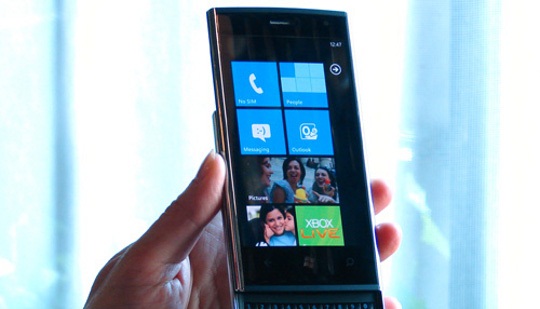Dell Venue Pro Windows Phone: Review

With its sliding keyboard, Dell’s Windows Phone 5 device is clearly aimed at Blackberry users
Microsoft used to have a major presence in mobile devices for business. But with the flood of Google Android and Apple iOS smartphones into both the consumer and corporate spheres, it’s become easy to forget how many people once used Windows Mobile as their portal to e-mail and services while on the move.
Are hubs better than apps?
 In a bid to counter all those rivals — not to mention Research In Motion’s BlackBerry franchise — Microsoft introduced Windows Phone 7 in 2010. In place of a grid-like screen of individual apps, the company decided to take a more creative approach, consolidating apps and Web content into a series of subject-specific “Hubs.”Like Android and iOS, there is considerable focus on apps and games from third-party developers, and Microsoft has worked with its manufacturing partners to ensure a consistent hardware standard across all the Windows Phone 7 devices in the stable.
In a bid to counter all those rivals — not to mention Research In Motion’s BlackBerry franchise — Microsoft introduced Windows Phone 7 in 2010. In place of a grid-like screen of individual apps, the company decided to take a more creative approach, consolidating apps and Web content into a series of subject-specific “Hubs.”Like Android and iOS, there is considerable focus on apps and games from third-party developers, and Microsoft has worked with its manufacturing partners to ensure a consistent hardware standard across all the Windows Phone 7 devices in the stable.
From the outset, Windows Phone 7 seemed aimed first and foremost at consumers. It had an Xbox Live hub, for games, and easy integration with services such as Facebook. Microsoft also tried appealing to businesses with an Office hub, complete with OneNote, SharePoint, and mobile versions of Word, Excel and PowerPoint.
Touch plus Qwerty Equals BlackBerry rival?
That brings us to the Dell Venue Pro, a smartphone, which was shown at the launch of windows Phone 7, from a company more well-known for its PCs. In that sense, at least, the device — along with the Dell Streak 7, a 7-inch tablet — represents something of a bet for the Texas manufacturer: can it establish a presence in the market for mobile devices in the same way it did for traditional desktops and laptops?
Dell’s vehicle for making that inroad is a 193g smartphone with a 4.1-inch capacitive touch-screen and a physical QWERTY keyboard that slides out from underneath. Those familiar with smartphones could be excused for making an instant comparison to RIM’s BlackBerry Torch 9800, which also featured a touch-screen and sliding keyboard.